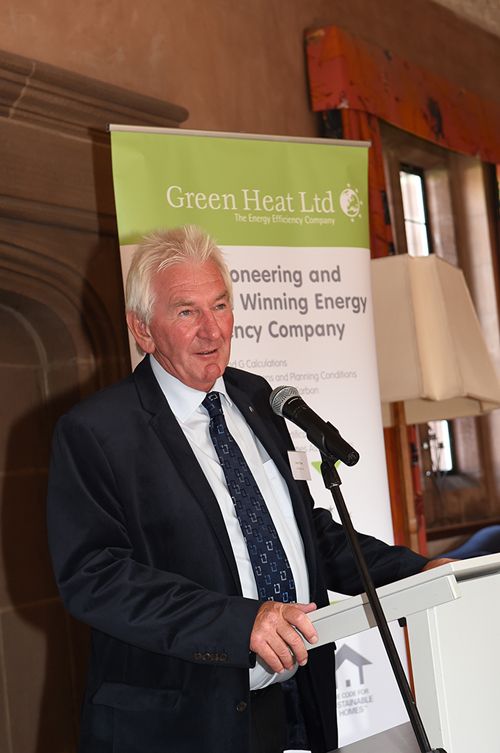

This New Year housesellers are being urged to make sure their property is energy efficient before it goes on the market, or risk losing thousands.
Figures from a recent survey conducted by SellingUp.com suggest a home’s energy efficiency rating could be a deal-breaker, with over half of potential purchasers saying they would drop their offer if the rating was poor. One in three said an inefficient property would lead them to reduce their offer by thousands and 16% said they would pull out completely.
Peter Thom, managing director of Green Heat, said: “With every home now requiring an Energy Performance Certificate (EPC), buyers can see whether a property needs improvements.
“This will influence their offer. Poorly insulated homes are costly, to run and to the environment, but these latest figures are also an important reminder to homeowners that an inefficient property will have an impact on resale value.”
Ahead of putting a property on the market, an EPC will make recommendations for cost-effective improvements to help cut fuel bills and carbon dioxide (CO²) emissions.
“By following the recommendations in an EPC, an average of £300 a year can be saved on fuel bills.”
With a quarter of heat lost through the roof of an uninsulated home; loft, attic or roof insulation is a simple and effective way to keep heat in and reduce fuel bills.
The Energy Saving Trust estimates that annual savings of up to £240 and 990 kg of CO² can be achieved by installing loft insulation, while cavity wall insulation can save up to £275 and 1,100 kg of CO² with less than a five-year payback and a 25-year (CIGA) guarantee.
“Boilers account for 55% of your annual fuel bill, so an efficient boiler is key to keeping bills down,” added Peter. ‘A’-rated condensing boilers are over 90% efficient and some older boilers are as low as 55% efficient. By replacing an old ‘G’-rated boiler with a new ‘A’-rated condensing boiler and heating controls, carbon emissions can be cut by 1,500 kg a year and fuel bills by around £340.
A recent project undertaken by Green Heat to increase the efficiency of a home in Cambridge saw improvements to the property’s insulation result in savings of more than 60%.
Installing a high efficiency ‘A’-rated gas condensing combination boiler, together with double-glazing and insulation to the loft, walls and below the ground floors have reduced the predicted energy costs for heating, hot water and lighting from £1,502 to £610 per year. The home’s annual CO2 emissions were originally seven tonnes; these have now been cut to just 2.5 tonnes per year.
Before any work was done, the property had a SAP* (Standard Assessment Procedure) score of 45, Band ‘E’. Now the energy performance of the home has risen dramatically to a SAP rating of 77, Band ‘C’, which will reflect strongly in its resale value.
“The UK still has some of the oldest and most inefficient housing in Europe, with people wasting energy and paying much higher fuel bills than necessary,” said Peter. “Our houses also account for 27% of the UK’s carbon emissions, which contributes to climate change. With around 26 million homes, this is a significant cost to the environment.
“The SellingUp survey demonstrates that energy efficiency is now a priority consideration in the house-buying process alongside location and size. This is a positive step forward that should drive the momentum for more green schemes to help people make their homes energy efficient. By making simple improvements recommended by an EPC, homeowners will avoid wasting energy and enjoy a warmer home that is significantly cheaper to run, while also safeguarding their resale value.”
